Countdown to the World Cup in Qatar: ‘Cows have been flown in’
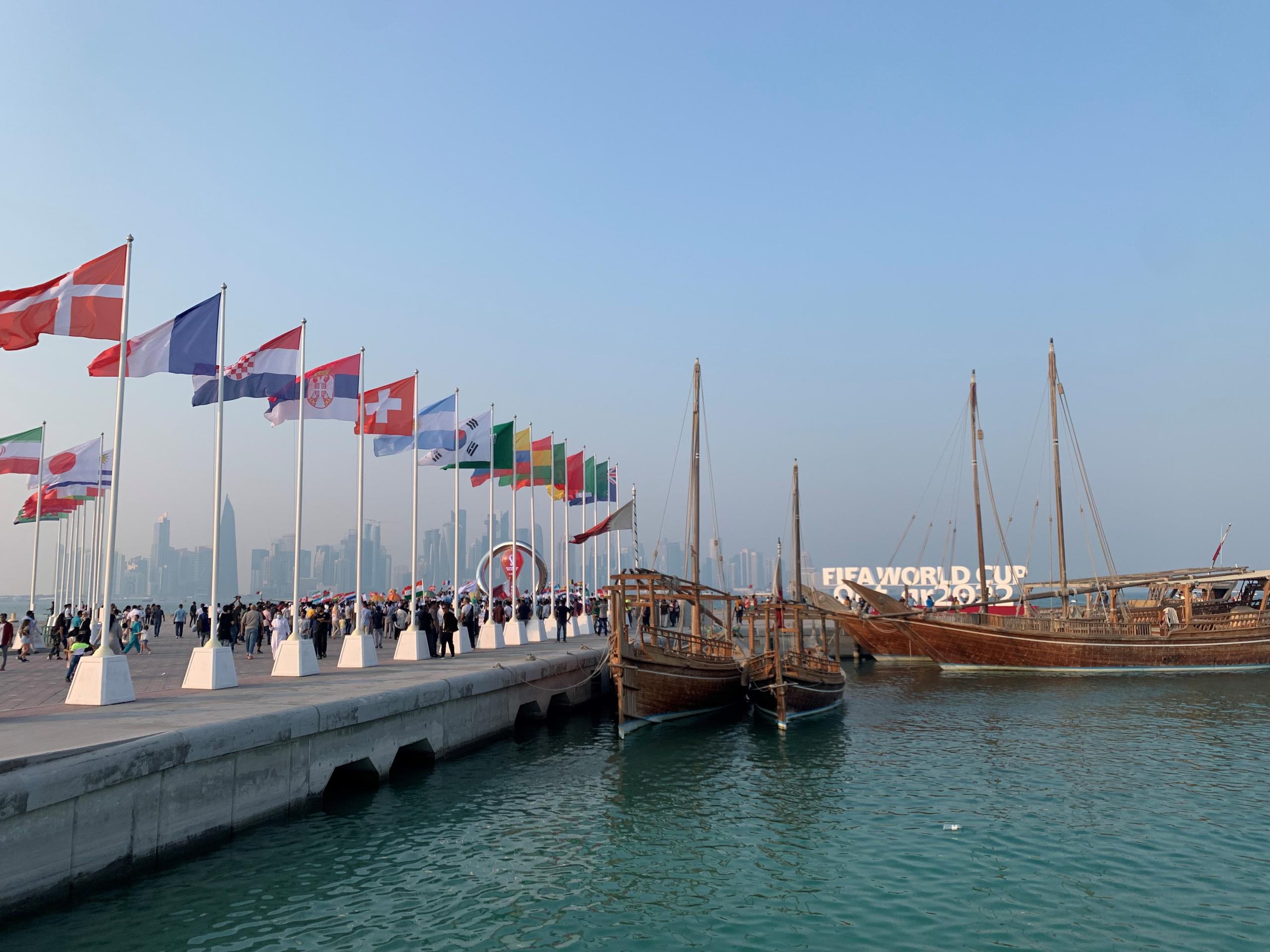
In less than a month, the football World Cup will kick off. What is life like as a Swiss person in Qatar, which was so heavily criticised in the run-up?
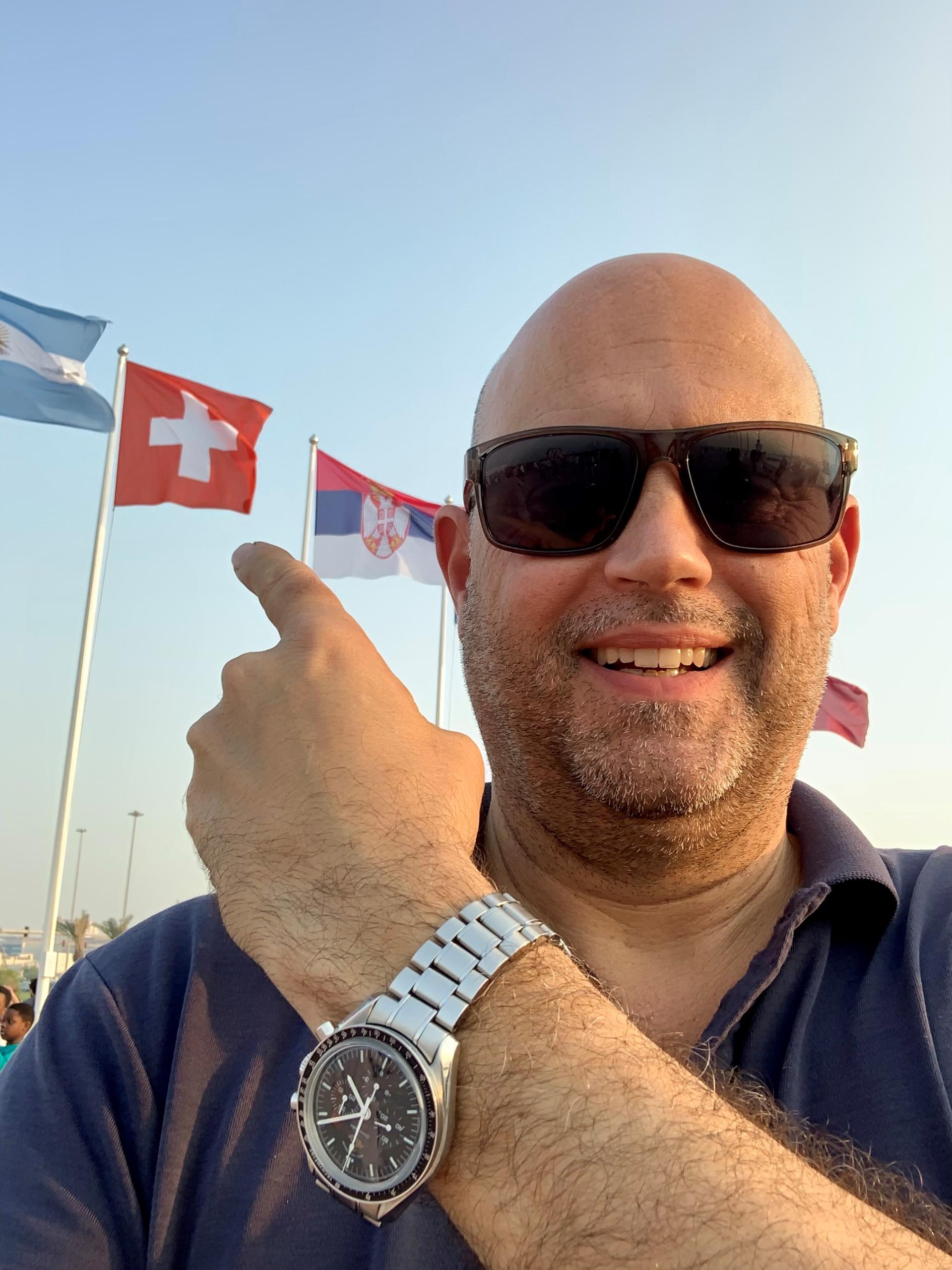
Qatar, the host of the 2022 World Cup, is home to 219 Swiss citizens. The tournament kicks off in less than a month. In the run-up, Swiss expatriates tell us what it’s like to live and work in Qatar and describe the atmosphere. We begin with Andreas Briner, a 53-year-old geologist.
“I have lived abroad since I completed my doctorate in geology at the University of Bern in 1997. Since then I have been working for Shell – first in Africa, then in Borneo, and most recently in the Middle East. My current role is to manage soil investigations for oil and gas production.
I have lived in Doha with my family for six years – almost all expats live here in the capital. My two younger children – a daughter and a son – go to school here and the eldest is studying in Europe. Contact with Qataris happens through work – almost never privately. Expats tend to socialise among themselves.
I seldom have contact with other Swiss people here – but of all the places I have been posted in recent years, Qatar has the largest Swiss community. The Swiss Embassy is very active and there are regular events.
Forced labour, exploitation, unexplained deaths – Qatar has faced fierce criticism since being selected as host of the World Cup. The conditions for migrant workers have improved since FIFA decided to host the World Cup. But the criticism continues.
One month before the kick-off, Amnesty International published a new report demanding dramatic improvements from Qatar and the football association FIFA before the World Cup starts. According to Amnesty International, the grievances are far from being resolved: the organisation cites homophobic laws, restrictions on freedom of the press, and labour law shortcomings.
“Thousands of migrant workers continue to face the problem that their wages are paid late or not at all, their rest days are cancelled and it is impossible for them to change jobs. They have little legal recourse against these violations,” writes Amnesty International. Moreover, the deaths of thousands of migrant workers in Qatar remain unresolved.
Around three million people live in the country on the Persian Gulf, of whom only 15% are Qataris. The majority of the population are economic migrants without Qatari citizenship. The country has one of the highest proportions of foreign inhabitants in the world.
It’s too hot in August and most people leave the country during that time. Hence, the embassy usually invites Swiss residents to the August 1 Swiss National Day celebrations months later. Schools are also closed for two months during the summer. Towards the end of October it becomes more pleasant again. At the moment, it is still over 30°C during the day.
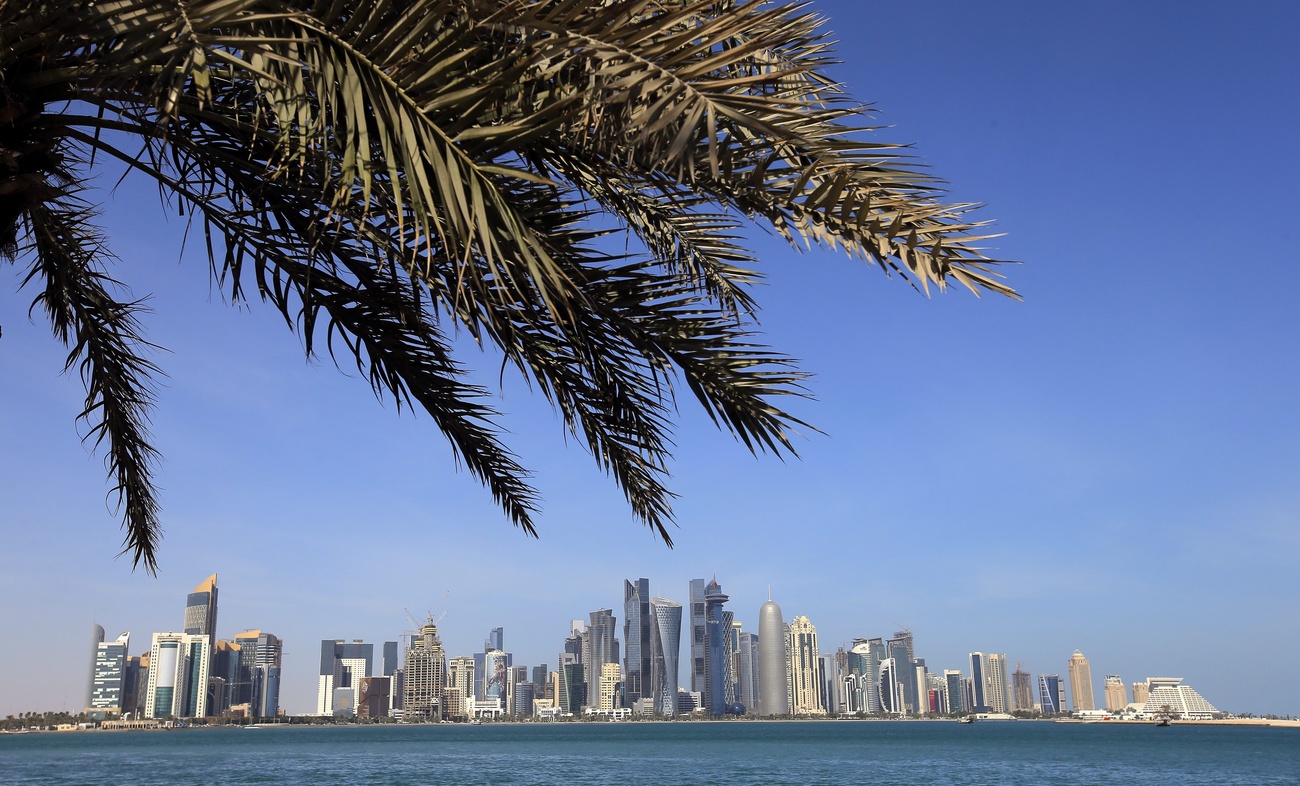
Preparations for the World Cup have influenced life in Qatar over the last six years. When we arrived here, it took me over 50 minutes to get from an outlying district to the city centre because of the lack of roads and the many construction sites. But since then, the road network has developed to the extent that it now only takes me 20 minutes.
Construction sites, dust, noise and chaos on the roads – all because of the World Cup. But what they have achieved here in this time is incredible. There is now an underground rail system and there are new museums. The whole infrastructure has improved.
The biggest challenge in the last few years was the political blockade imposed by Saudi Arabia, the United Arab Emirates, Bahrain and Egypt. You could no longer fly to these countries and you couldn’t even fly over them. Every journey abroad took longer.
In response to this blockade, which lasted almost three years, Qatar became more self-sufficient. Before it happened, the country was heavily dependent on others for food. But now cows have now been flown in and vegetables are grown in refrigerated greenhouses. Any other country would probably have collapsed – but here there is no shortage of money. That is however a political issue, and it’s advisable not to say too much about it in Qatar.
For more than six months now, there has been a great sense of anticipation about the football tournament in Doha. Flags hang everywhere, oversized football posters are attached to the facades of the skyscrapers and the countdown is on display everywhere. A lot of people are looking forward to the World Cup.
30 days ahead of #FIFAWorldCupExternal link #Qatar2022External link.. Doha is decorated in preparation for receiving the World Cup guests. #QNAExternal link pic.twitter.com/yPfEpMkV92External link
— Qatar News Agency (@QNAEnglish) October 21, 2022External link
But it also has a huge impact on daily life. Schools will be closed for four weeks, 80% of the workforce is to work from home, and many roads will be closed from 11am. Business trips will almost be impossible during the tournament because the hotels are all booked up. I know of some expats who are leaving the country to escape the onslaught. I’m sure there are many people badmouthing the tournament. But I prefer not to do that.
Qatar is a very small country, and it has been able to step out of the shadow of neighbouring countries in recent years. With Formula 1 racing and other sporting events, the emirate is also preparing for a future without oil and gas. Qatar wants to build a positive image in the world and become a modern nation – that’s my interpretation. I don’t want to paint an overly positive picture; like everywhere, there is always room for improvement. But the World Cup has made conditions here in the country fairer and much has changed for the better.
We will attend all of Switzerland’s group matches. We were very lucky in the lottery for the tickets – probably also because the games of the Swiss national team were not in great demand. My wife is British, but my heart is definitely beating for Switzerland in this World Cup.
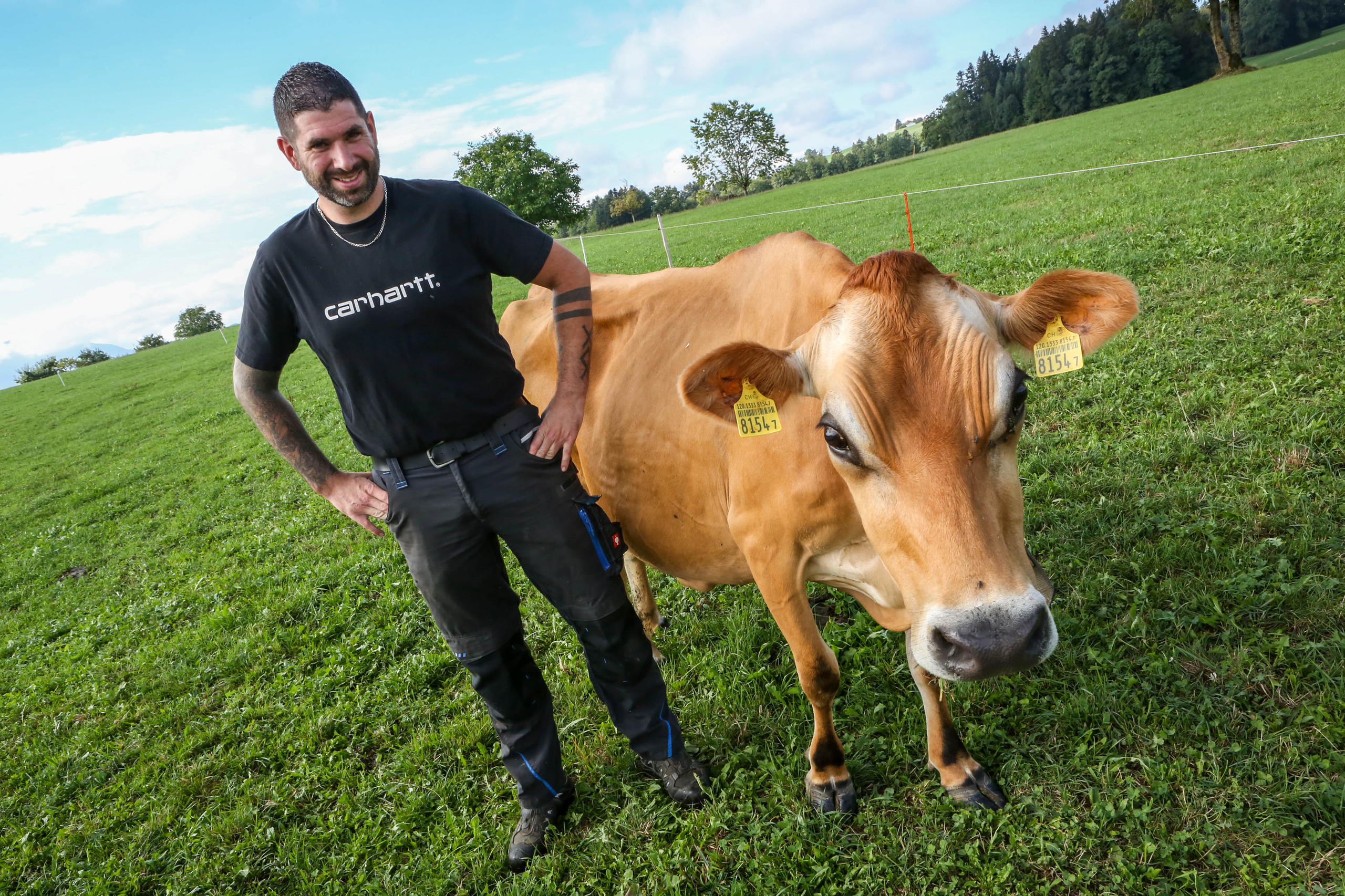
More
Swiss farmers trial methane-busting feed for cows

In compliance with the JTI standards
More: SWI swissinfo.ch certified by the Journalism Trust Initiative










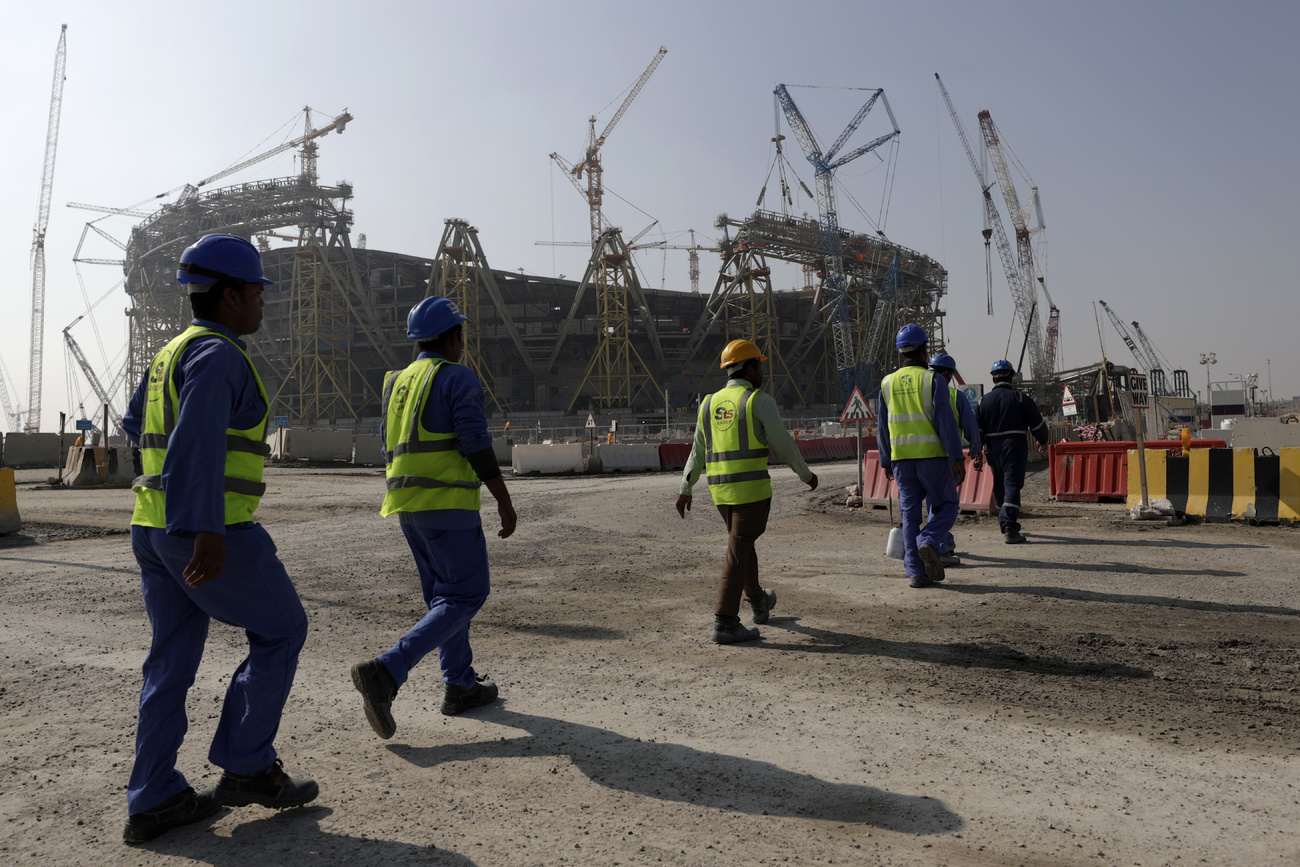
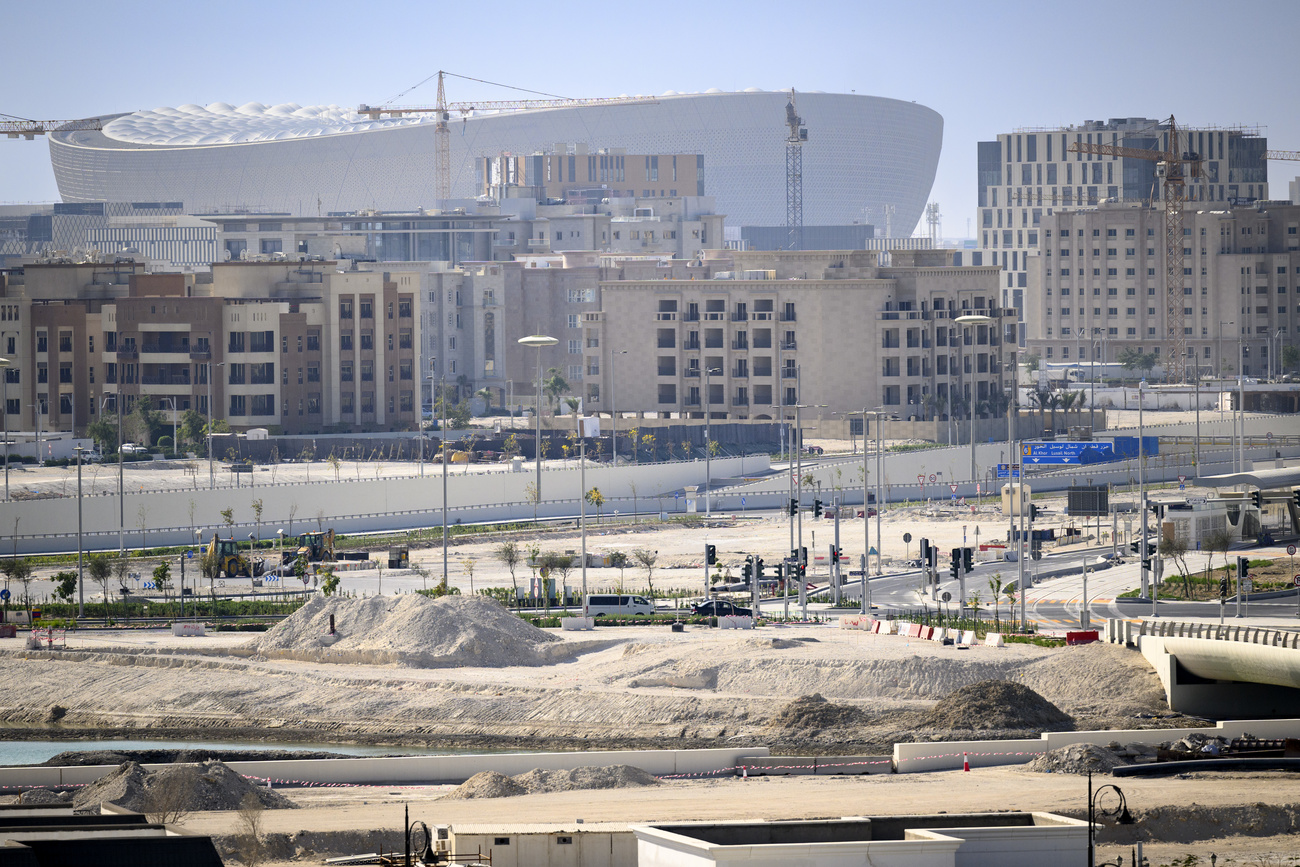


You can find an overview of ongoing debates with our journalists here . Please join us!
If you want to start a conversation about a topic raised in this article or want to report factual errors, email us at english@swissinfo.ch.